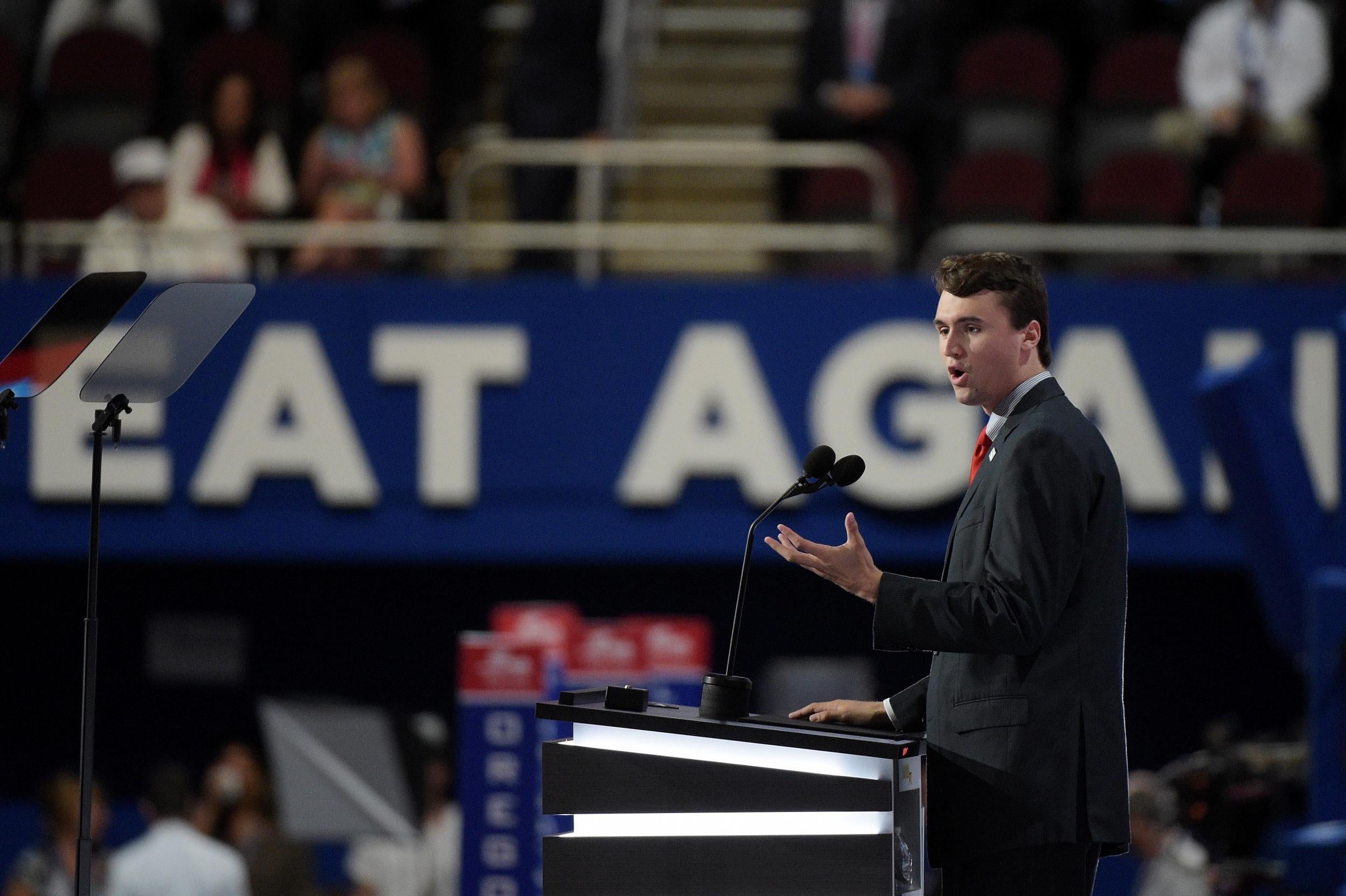The Turning Point saga shows how easily US money can infiltrate and influence British political discourse
There are claims that these ventures are simply stunts, paid for with money from conservative organisations in order to stitch up ‘social justice warriors’ and galvanise Trump’s base


Your support helps us to tell the story
From reproductive rights to climate change to Big Tech, The Independent is on the ground when the story is developing. Whether it's investigating the financials of Elon Musk's pro-Trump PAC or producing our latest documentary, 'The A Word', which shines a light on the American women fighting for reproductive rights, we know how important it is to parse out the facts from the messaging.
At such a critical moment in US history, we need reporters on the ground. Your donation allows us to keep sending journalists to speak to both sides of the story.
The Independent is trusted by Americans across the entire political spectrum. And unlike many other quality news outlets, we choose not to lock Americans out of our reporting and analysis with paywalls. We believe quality journalism should be available to everyone, paid for by those who can afford it.
Your support makes all the difference.The launch of Turning Point UK, the British chapter of the hugely wealthy right-wing American students organisation, was welcomed this weekend by Tory right wingers and, on social media, by a spate of satirical parody accounts.
Since 2012, Turning Point has been a fixture of the American culture war over college campuses. Led by a friend of the Trump family, Charlie Kirk, Turning Point is a platform for anti-state, extreme free market ideas, which – like many new right-wing movements – has also flirted with “alt right” practices and ideas.
BBC Politics Live featured representatives from Turning Point UK on Tuesday, in a move criticised as an instance of the BBC’s viewpoint diversity agenda needlessly boosting minority far right opinion.
Investigations such as Carole Cadwalladr and openDemocracy’s Cambridge Analytica reporting have accustomed us to the idea that billionaires from the US are habitually funding protest groups, events, and online ads, as well as political movements and candidates; sometimes openly and legally, sometimes via untraceable and legally dubious “dark money”.
What is novel about Turning Point is the fight being taken to Britain’s universities. Despite figures like Toby Young and the former Universities minister, Sam Gyimah, speaking out strongly over US-style campus “no platforming”, the idea of Britain’s universities as hotbeds of violent faceoffs between the right and left has thus far not been a convincing one.
Turning Point UK’s launch was therefore greeted with surprise (and in the case of the parody accounts, delight), but there had been one bit of advance warning. One week earlier, a solitary Facebook ad was bought by the company announcing the UK chapter’s launch. However – as a simple search on the political advertising monitoring app, “Ad Library” reveals – no one in Britain saw it. Like all of the group’s Facebook content, its targeted hits were in Texas, California, Ohio, but none in the UK.
Stranger still, nobody young saw it. An audience breakdown for the ad reveals that the overwhelming majority of its targeted audience were over 45, and precisely 0 were under 24. As the journalist Jordan Uhl has already noticed, all of Turning Point USA’s Facebook paid-for advertising is like this. Posts “owning” Alexandria Ocasio-Cortez and “destroying” Bernie Sanders with pop culture references and meme formats familiar to millennials and Gen Z-ers, are being targeted not at the undergraduate students whose idiom they mimic, but at baby boomers.
The Cambridge Analytica affair has encouraged us to fear social media advertising, which seems to know us better than we know ourselves, as a force capable of preying on our minutest fears and anxieties. How, then, do we account for the mismatch between the audience Turning Point is presumed to be trying to manipulate and the one it’s actually paying to reach?
Writing on the pattern in the US where extreme and notorious right-wing speakers arrange campus visits, only for them to collapse in violent protests, the conservative commentator Chris Ladd has gone as far as to claim that many of these events are simply stunts, paid for with money from conservative organisations such as those funding Turning Point.
“Finding students among the organizers and attendees is a challenge”, claims Ladd, who speculates that the real aim of such events is not to appeal to students at all, but to generate footage of raging “Social Justice Warriors” and masked “Antifa” troublemakers, to be “played in fundraising pitches to aging Alabamans”, and to embolden Donald Trump’s base.
One should be cautious of the kind of liberal wishful thinking that pretends no students are sincerely right-wing.
But on the evidence of their social media advertising, it is possible that Turning Point UK’s real audience isn’t in the UK at all, just as the organisation in general isn’t really interested in advertising to students.
The BBC should be cautious about being part of a proxy war whose real object is middle-aged and elderly Trump supporters.
Join our commenting forum
Join thought-provoking conversations, follow other Independent readers and see their replies
Comments